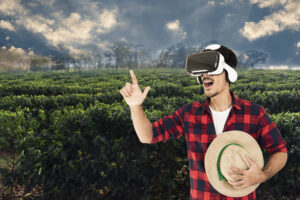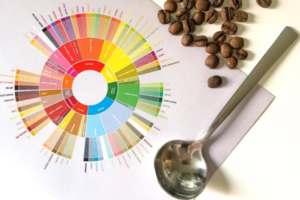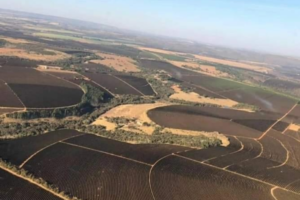Introduction:
In the rapidly evolving field of agricultural innovation, drones have emerged as indispensable tools for crop surveillance and management. With their potential to revolutionize the practices of coffee cultivation, drones equipped with advanced sensors and imaging capabilities offer coffee farmers invaluable insights into various aspects of crop health, soil conditions, and environmental factors. This article aims to delve deeper into the transformative impact of drone technology on the coffee industry, exploring its myriad benefits, challenges, and promising future prospects.
Unveiling the Benefits of Drone Technology:
Drones empower coffee farmers by providing real-time, high-resolution imagery and multispectral data, enabling early detection of pest infestations, diseases, and nutrient deficiencies. This proactive approach to crop monitoring facilitates timely interventions, ultimately minimizing crop losses and maximizing yields. Additionally, drones enable precise mapping of terrain and vegetation, which aids in optimizing irrigation and fertilization practices. Their ability to efficiently monitor large expanses of land makes drones indispensable tools for coffee growers, offering a cost-effective and sustainable alternative to traditional monitoring methods.
Navigating Challenges and Implementing Solutions:
Despite their myriad benefits, drones encounter challenges such as regulatory restrictions, operational complexities, and data management issues. However, ongoing advancements in drone technology, coupled with evolving regulatory frameworks, are gradually addressing these obstacles. Integration of artificial intelligence (AI) algorithms enables drones to autonomously analyze vast datasets, thereby enhancing efficiency and accuracy in decision-making processes. Moreover, collaborative efforts among stakeholders, including farmers, researchers, and policymakers, foster innovation and promote the development of tailored solutions to overcome these challenges.
Expanding Applications and Economic Impact:
Beyond crop monitoring, drones have the potential to revolutionize various aspects of coffee production and supply chain management. From assessing crop maturity to monitoring post-harvest processing and transportation, drones offer a holistic approach to improving efficiency and quality throughout the coffee production cycle. Moreover, the widespread adoption of drone technology is expected to generate significant economic benefits for coffee-producing regions, creating new job opportunities and driving economic growth.
Addressing Environmental Sustainability:
In addition to economic benefits, drones play a crucial role in promoting environmental sustainability in coffee farming. By enabling precision agriculture techniques, drones help minimize the use of agrochemicals and reduce water consumption, thereby mitigating the environmental impact of coffee production. Furthermore, by providing real-time data on environmental conditions, drones empower farmers to implement adaptive strategies to cope with climate change and other environmental challenges.
Future Challenges and Opportunities:
Despite the promising outlook for drone technology in coffee farming, several challenges remain to be addressed. These include issues related to data privacy, cybersecurity, and the ethical use of AI in agricultural decision-making. Moreover, the affordability and accessibility of drone technology pose barriers to adoption, particularly for small-scale coffee farmers in developing countries. However, concerted efforts from governments, industry stakeholders, and research institutions can help overcome these challenges and unlock the full potential of drones in coffee cultivation.
Expanding Applications and Technological Advancements:
In addition to their role in monitoring crop health, drones are increasingly being utilized for a wide range of applications in coffee farming. For instance, drones equipped with thermal imaging sensors can detect variations in temperature across coffee plantations, aiding in the identification of microclimates and optimizing planting strategies. Furthermore, drones can be employed for the aerial application of pesticides and fertilizers, offering precise and targeted treatment while minimizing environmental impact. As technology continues to advance, the capabilities of drones in coffee farming are expected to expand even further, with the potential for innovations such as autonomous drone fleets and enhanced data analytics algorithms.
Empowering Smallholder Farmers:
One of the most promising aspects of drone technology in coffee farming is its potential to empower smallholder farmers, who often lack access to traditional monitoring tools and resources. By providing affordable and user-friendly drone solutions, these farmers can benefit from real-time insights into their crops, enabling them to make informed decisions and improve productivity. Moreover, drones can serve as a valuable educational tool, helping farmers learn about sustainable farming practices and environmental stewardship. Empowering smallholder farmers with drone technology not only enhances their livelihoods but also contributes to the overall sustainability of the coffee industry.
Addressing Social and Ethical Considerations:
While the adoption of drone technology in coffee farming offers numerous benefits, it also raises important social and ethical considerations that must be addressed. For example, there is a risk of exacerbating existing inequalities within the industry if access to drones and related technologies is limited to large-scale producers. Additionally, the use of drones for surveillance purposes may raise concerns about privacy and data security, particularly in regions where land tenure rights are unclear. It is essential for stakeholders to engage in dialogue and collaboration to ensure that the benefits of drone technology are equitably distributed and that ethical guidelines are established to safeguard the rights of all stakeholders involved.
Government Support and Policy Frameworks:
To fully realize the potential of drone technology in coffee farming, it is crucial for governments to provide support and establish clear policy frameworks. This includes investment in research and development to further enhance drone capabilities, as well as initiatives to train farmers in drone operation and data analysis. Additionally, governments can play a role in facilitating access to drones through subsidies or financial assistance programs, particularly for smallholder farmers. Furthermore, regulatory frameworks should be established to ensure safe and responsible drone operation, while also addressing concerns related to privacy, security, and environmental protection.
Conclusion:
In conclusion, the integration of drone technology into coffee farming practices holds immense promise for revolutionizing the industry. Throughout this article, we have explored the myriad benefits, challenges, and opportunities associated with leveraging drones in coffee cultivation.
Drones empower coffee farmers by providing real-time data and high-resolution imagery, enabling proactive monitoring and timely interventions to address issues such as pest infestations, diseases, and nutrient deficiencies. Moreover, advancements in artificial intelligence and the Internet of Things offer exciting possibilities for further enhancing precision agriculture practices.
Despite the undeniable advantages, challenges persist, ranging from regulatory hurdles and security concerns to issues of accessibility and equity in technology adoption. However, with the support of governments, research institutions, and industry stakeholders, these challenges can be overcome.
The future of coffee farming hinges on continued innovation, sustainable practices, and a commitment to social responsibility. By fostering collaboration and knowledge-sharing, we can create a more resilient, efficient, and equitable coffee industry that benefits producers, consumers, and the environment.
In summary, drones have the potential to play a pivotal role in reshaping the coffee industry, helping it adapt to the challenges of the 21st century and thrive in a rapidly changing world. By embracing these technologies with foresight and determination, we can build a brighter and more sustainable future for global coffee production.



